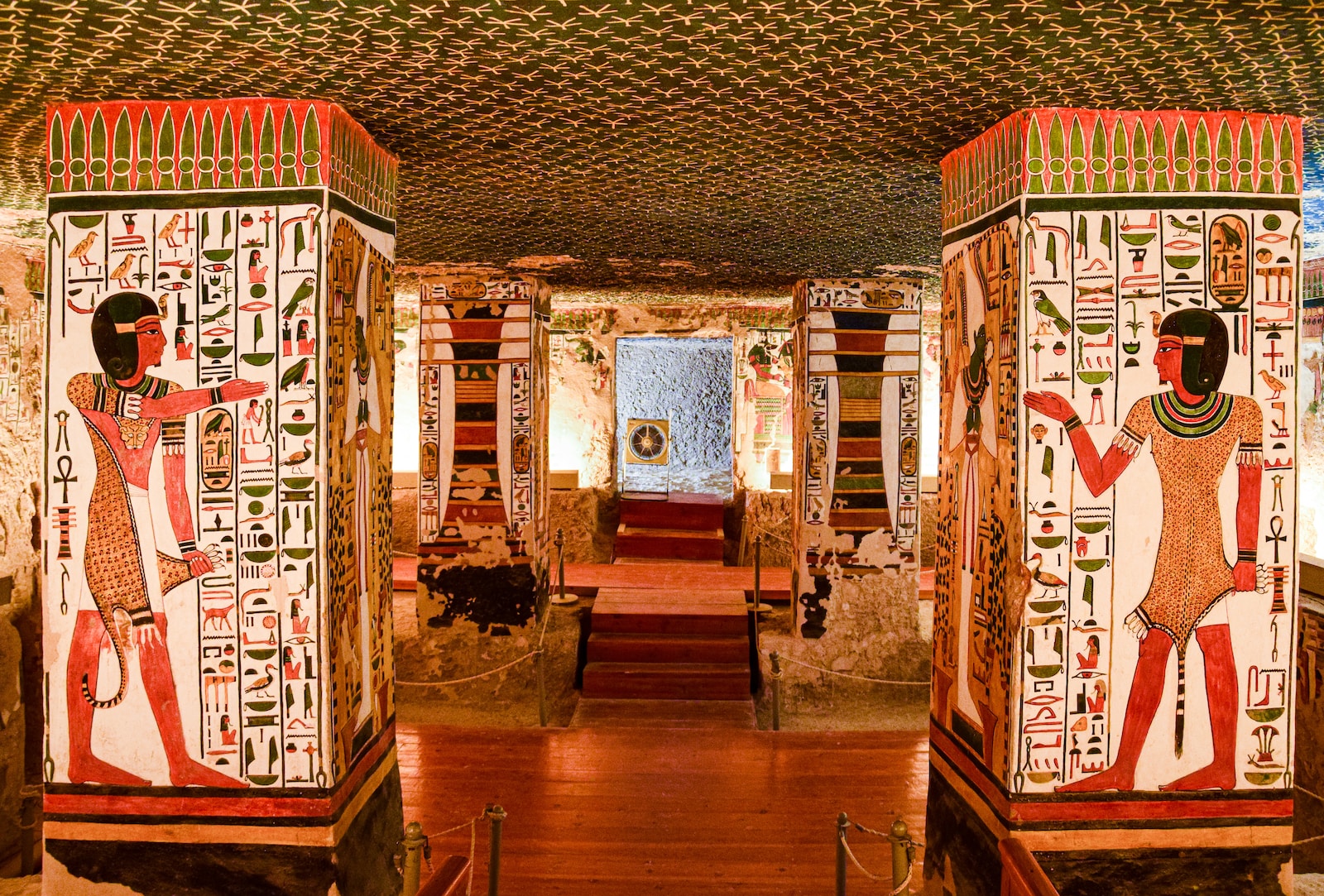In Genesis 41, we find ourselves in the midst of Joseph’s incredible journey. Pharaoh, the ruler of Egypt, had two perplexing dreams that troubled him deeply. Pharaoh’s wise men and magicians were unable to interpret these dreams. But then, the cupbearer remembered Joseph, who had accurately interpreted his dream while in prison.
So, Joseph was summoned from the prison and brought before Pharaoh. Through God’s divine wisdom, Joseph was able to interpret Pharaoh’s dreams. The dreams revealed that there would be seven years of abundant harvest all across Egypt, followed by seven years of severe famine. Joseph advised Pharaoh to appoint a wise and discerning man to oversee the storage and management of the grain during the years of plenty, in order to sustain the people during the years of famine.
Impressed by Joseph’s wisdom and discernment, his ability to interpret dreams, and his sound advice, Pharaoh appointed him as the second-in-command over all of Egypt. Joseph was given the authority to oversee the collection, storage, and distribution of the grain during the years of abundance. He was also given a new name, Zaphenath-Paneah, and a wife named Asenath, the daughter of Potiphera, the priest of On.
Now let’s explore the messianic link to Jesus in Genesis 41. This connection lies in the prophetic foreshadowing of Joseph’s story and the life and ministry of Jesus Christ.
Firstly, both Joseph and Jesus experienced rejection and betrayal. Joseph’s brothers sold him into slavery, and Jesus was betrayed by one of His own disciples, Judas Iscariot. Both Joseph and Jesus were also falsely accused and faced unjust trials before being exalted to positions of power and authority.
Secondly, Joseph’s appointment as Pharaoh’s second-in-command parallels Jesus’ exaltation to the right hand of God as the ruler over all creation. In Matthew 28:18, Jesus states, “All authority in heaven and on earth has been given to me.” Just as Joseph wielded great authority in Egypt, Jesus is given all authority in heaven and on earth.
Furthermore, the provision of grain during the famine in Egypt foreshadows Jesus’ role as the provider of spiritual sustenance. In John 6:35, Jesus said, “I am the bread of life. Whoever comes to me will never go hungry, and whoever believes in me will never be thirsty.” Just as Joseph stored up grain to save the people from starvation, Jesus offers eternal life and salvation to all who believe in Him.
Additionally, Joseph’s marriage to Asenath, the daughter of the priest of On, highlights Jesus’ role as the ultimate High Priest. In Hebrews 4:14, it is stated, “Since then we have a great high priest who has passed through the heavens, Jesus, the Son of God, let us hold fast our confession.” Jesus serves as our intercessor, mediating between God and humanity, just as Joseph interceded on behalf of his brothers.
Moreover, the concept of dreams plays a significant role in both Joseph’s story and Jesus’ ministry. Joseph accurately interpreted dreams, and Jesus often used parables and visions to convey profound spiritual messages. Both Joseph and Jesus were chosen vessels of God to communicate important revelations to humanity.
Finally, Joseph’s reconciliation with his brothers serves as a powerful foreshadowing of Jesus’ mission to reconcile humanity with God. In Genesis 45:5, Joseph tells his brothers, “And now, do not be distressed and do not be angry with yourselves for selling me here, because it was to save lives that God sent me ahead of you.” Similarly, Jesus came to reconcile us to God through His sacrificial death and resurrection, offering forgiveness and salvation to all who believe in Him.
In conclusion, Genesis 41 showcases Joseph’s rise to power and his role as Egypt’s overseer during a severe famine. The messianic link to Jesus lies in the parallels between Joseph’s story and the life, ministry, and mission of Jesus Christ. Just as Joseph was exalted to a position of authority, Jesus is exalted as the ruler over all creation. Both Joseph and Jesus offer provision and sustenance, with Joseph providing physical sustenance through grain and Jesus providing spiritual sustenance as the bread of life. Joseph’s marriage to Asenath, the daughter of the priest of On, foreshadows Jesus’ role as the ultimate High Priest. The concept of dreams, the importance of prophecy, and the theme of reconciliation further connect Joseph’s story to Jesus’ mission. Overall, Genesis 41 serves as a powerful precursor to Jesus’ ultimate role as the Messiah, showcasing God’s divine plan of redemption and reconciliation through His chosen vessels.
#Genesis41, #JosephAndJesus, #PropheticForeshadowing, #DreamInterpretation, #AuthorityParallel, #BreadOfLife, #HighPriestRole, #DivineRevelation, #ReconciliationTheme, #GodsRedemptionPlan, #MessiahPrefiguration, #SustenanceAndSalvation, #DivineWisdom, #ExaltationInPower, #RevealingProphecies, #JesusMinistry, #SpiritualSustenance, #DivineAuthority, #IntercessionRole



